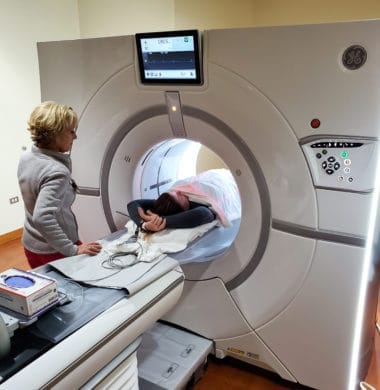Heart disease is still one of the main reasons people die, but thanks to progress in medical technology, we now have powerful tools to predict and stop heart-related problems before they happen. The calcium heart score, which is also called the coronary artery calcium (CAC) score, is one of these tools. This diagnostic measure offers valuable insights into heart health by detecting calcium deposits in the coronary arteries, which is crucial for assessing one’s risk for heart disease. Understanding how the calcium heart score works and what it reveals can help individuals make informed decisions about their cardiovascular health.
What is the Calcium Heart Score?
The calcium heart score is a numerical value derived from a specialized imaging test called a coronary artery calcium scan or simply a calcium scan. This scan, performed using a low-dose CT (computed tomography) scan, measures the amount of calcium present in the coronary arteries—the blood vessels responsible for supplying oxygen-rich blood to the heart. These arteries shouldn’t have any calcium in them normally, but a buildup of hardened plaque can be a sign of atherosclerosis, a disease that narrows blood vessels and raises the risk of heart attacks and other heart diseases.
How is the Calcium Heart Score Calculated?
During a coronary calcium scan, images are taken of the heart and its arteries. A radiologist or technician analyzes these images to determine the amount of calcified plaque, assigning a numerical value known as the calcium score. This score typically ranges from 0 to over 400, with higher values indicating a greater accumulation of calcium and, subsequently, a higher risk of heart disease. Here’s a breakdown of the calcium score categories:
- Score of 0: No calcification detected, suggesting a very low risk of heart disease.
- Score of 1–10: Minimal calcium buildup; low risk but not negligible.
- Score of 11–100: Mild calcification; moderate risk and a sign of early plaque development.
- Score of 101–400: Moderate to significant calcification; higher risk and potential need for medical intervention.
- Score over 400: Extensive calcification; high risk and a strong recommendation for preventive or therapeutic measures.
Why is the Calcium Heart Score Important?
The calcium heart score is a valuable predictor of coronary artery disease (CAD), providing insights that traditional risk factors alone may not reveal. Even people who appear healthy and have no outward symptoms of heart disease can be at risk due to undetected plaque buildup. By identifying these risks early, the calcium score enables individuals to take preventive actions—such as lifestyle modifications or medication—to slow or prevent further progression of the disease.
Moreover, the calcium score can be especially informative for people with intermediate risk profiles. For instance, a person who has mildly elevated blood pressure and cholesterol but no other risk factors may benefit from a CAC scan to clarify their risk level and guide their care plan.
Who Should Get a Calcium Heart Score Test?
The calcium heart score test is generally recommended for individuals over 40 who have an intermediate risk of heart disease, especially those with a family history of cardiovascular issues or other risk factors like high cholesterol, hypertension, diabetes, or a smoking habit. It’s particularly useful for those who are otherwise asymptomatic but have concerns about their heart health. However, the test is not typically recommended for individuals with a very low or very high risk of heart disease, as it may not yield additional insights that would change their treatment plans.
Interpreting and Using Your Calcium Heart Score
Once you have your calcium heart score, it’s essential to discuss the results with your healthcare provider. A higher score may lead to recommendations such as lifestyle changes, dietary adjustments, or medications to lower cholesterol or blood pressure. For some, additional testing or more intensive treatments might be advised, depending on their overall risk profile and score.
For those with a score of 0, it’s still important to maintain a healthy lifestyle and monitor heart health, as the score only reflects the current state of the arteries. Factors like diet, exercise, and regular checkups remain vital for long-term cardiovascular well-being.
Taking Control of Your Heart Health
A calcium heart score offers a snapshot of your cardiovascular health, empowering you with information to make proactive decisions. While no test can guarantee the prevention of heart disease, the calcium heart score provides a scientifically backed method to understand and manage your heart disease risk. By interpreting and responding to this score, individuals can work closely with healthcare providers to build a plan focused on reducing risks and promoting a heart-healthy lifestyle.


